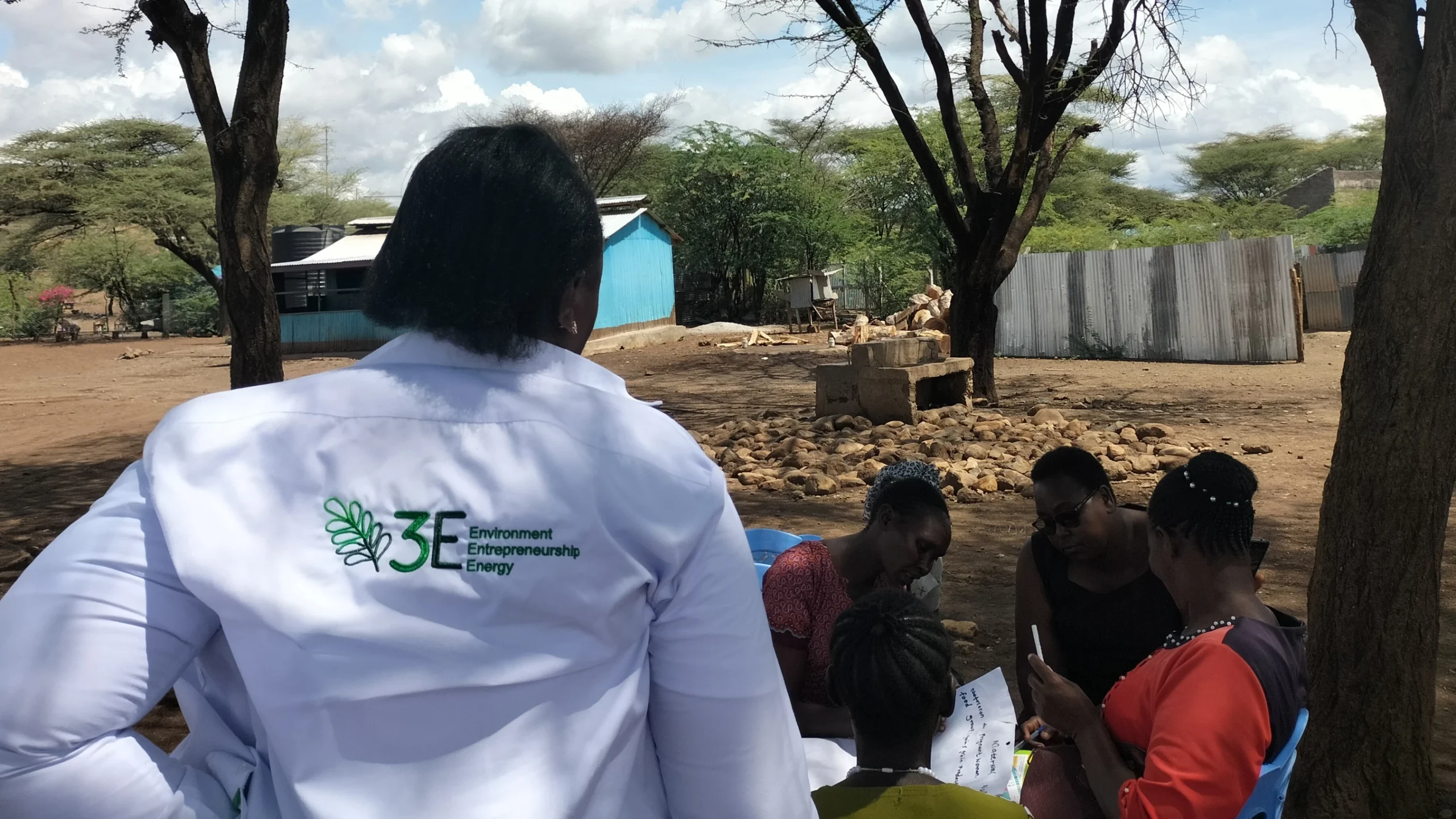In Marigat, a Kenyan area known for its arid and semi-arid climate, malnutrition a is prevalent. Unpredictable rainfall patterns make achieving food security a constant struggle. The dry seasons render large parts of the year unproductive.
However, in 2023, 3E Africa’s project “CHAKULA CHETU AFYA YETU” brought a wave of change. The organization implemented a food security initiative that involved creating regenerative agriculture demonstration plots, alongside dairy goat and poultry farming activities. The poultry, specifically improved indigenous chicken known for their egg-laying abilities, were distributed to women’s groups as a source of protein for their families.
3E Africa went beyond mere distribution. They provided comprehensive support, including training to equip the women with poultry management skills, standard housing structure, start-up feed, feeders, and drinkers. This initial support for household needs turned into a much larger community benefit, benefiting most women in the community indirectly.
The establishment of a fully equipped hatchery center within the project was a game-changer. It transformed the initiative from a small-scale household project into a sustainable source of income for the community. Women can now easily order one-month-old chicks from the hatchery, raise them to maturity, and even continue breeding their own. This provided an extra income for the households.
This project’s outcomes extend far beyond generating income. The women have reported using the proceeds from selling birds and eggs to pay for their children’s school fees. Additionally, the improved birds, which lay an average of 20 eggs per month, provide a reliable source of protein, improving the family’s overall health and nutrition.
The women’s resounding satisfaction with the project is a testament to its success. They’ve gained valuable experience in poultry management. 3E organization’s commitment to holistic community empowerment is reflected in the project’s lasting positive outcomes. It’s a success story not just for the participating women, but for the entire Marigat community





